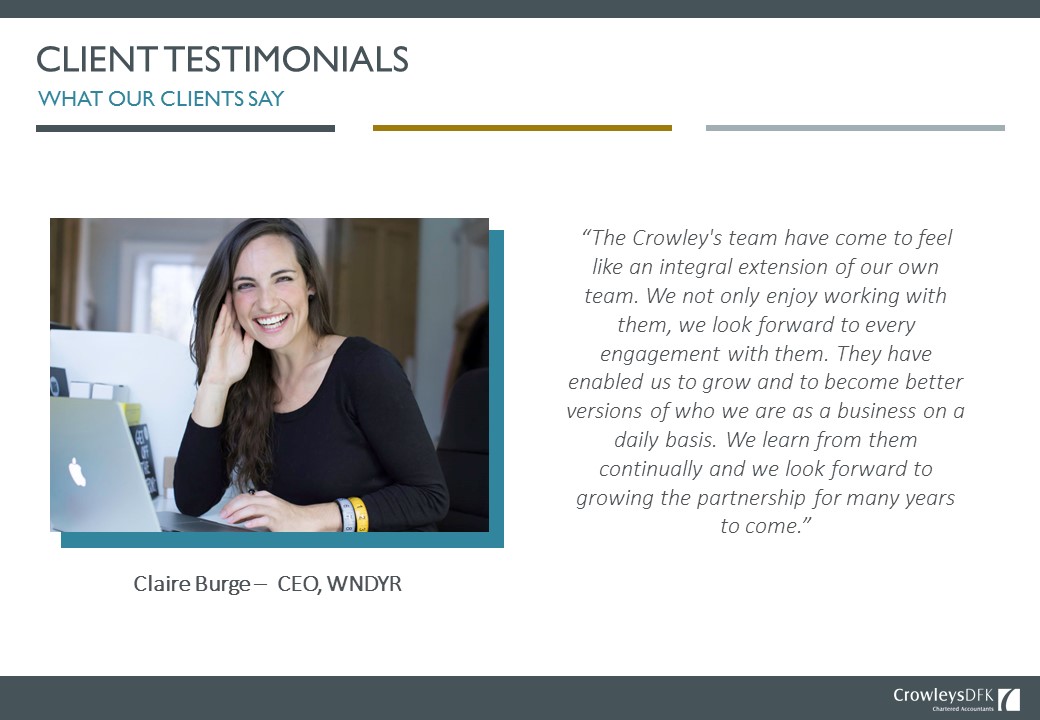Ireland enjoys an enviable reputation as a business-friendly location and it’s not just global giants who reap the benefits, says Edward Murphy, Partner and Head of Tax Services.
Ireland is home to many of the world’s most successful companies. Sixteen of the top twenty global technology firms are located here as are twenty-four of the twenty-five top biotech and pharma companies.
However, it is not just global giants that reap the benefits of doing business in Ireland. Many smaller companies also take advantage of the pro-business culture and ease of access to EU markets.
In the software sector alone, more than 900 multinational and indigenous firms employ 24,000 people generating €16 billion of exports annually, according to IDA Ireland, the state agency responsible for promoting foreign direct investment.
Ireland’s Foreign Direct Investment Success
One reason for Ireland’s foreign direct investment (FDI) success is the favourable tax regime. There are double tax treaty agreements in place with 72 other countries and the 12.5 percent corporate tax rate is one of the lowest in the EU.
Other advantages include an attractive holding company regime and tax incentives for certain types of investment. For example, Irish-resident companies carrying out qualifying research and development activity can avail of a ‘Knowledge Development Box’ where eligible profits are taxed at a rate of just 6.25 percent.
Tax not the only reason to locate in Ireland
While tax is undoubtedly an important consideration, it is not the only reason foreign businesses choose to locate in Ireland. Other influences include:
- Ease of doing business.
- Supportive state agencies.
- Political stability.
- EU membership and proximity to EU markets.
- Strong legal framework for the development, exploitation and protection of intellectual property rights.
- English-speaking population (When the UK leaves the EU, Ireland will be the only English-speaking EU member state).
- Strong talent pipeline with around 30 percent of Irish third level students enrolled in science, technology, engineering and maths (STEM).
- Collaborative ecosystem where industry and academics work together to the benefit of society and the economy.
- Growing economy. GDP growth of 4.4 percent is forecast for 2018 and 3.9 percent for
US and Canadian Companies in Ireland
Around 700 US companies are located in Ireland, employing more than 150,000 people. Anecdotally, US technology companies report that they can hire two engineers in Ireland for the price of one in Silicon Valley, with higher multiples for some engineering specialties.
Notwithstanding the Trump administration’s recent tax reform package which will see US corporation tax rates fall from 35 percent to 20 percent, Ireland’s corporate tax rate is still only around half the US rate when federal taxes are taken into account.
Canadian interest in Ireland is also growing. The EU-Canada trade deal which provisionally came into force in September 2017 will create further opportunities for Canadian businesses seeking to set up in Ireland.
Conclusion
At a time of global economic and political uncertainty, Ireland offers a stable, pro-business environment and is an excellent location from which companies seeking to establish a base in the EU can develop and expand their businesses.
Crowleys DFK assists many foreign owned companies to set up operations in Ireland. For more information and to discuss your specific requirements, please get in touch.
Talk to Us

Edward Murphy
Partner and Head of Tax Services
edward.murphy@crowleysdfk..ie


 The Finance Bill 2017 has introduced a tax efficient share option scheme for employees of SMEs. The Finance Bill provides that from 1 January 2018, SMEs in Ireland will be able to grant KEEP (Key Employee Engagement Programme) share options to their employees.
The Finance Bill 2017 has introduced a tax efficient share option scheme for employees of SMEs. The Finance Bill provides that from 1 January 2018, SMEs in Ireland will be able to grant KEEP (Key Employee Engagement Programme) share options to their employees.